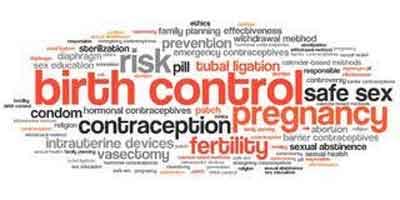- Home
- Editorial
- News
- Practice Guidelines
- Anesthesiology Guidelines
- Cancer Guidelines
- Cardiac Sciences Guidelines
- Critical Care Guidelines
- Dentistry Guidelines
- Dermatology Guidelines
- Diabetes and Endo Guidelines
- Diagnostics Guidelines
- ENT Guidelines
- Featured Practice Guidelines
- Gastroenterology Guidelines
- Geriatrics Guidelines
- Medicine Guidelines
- Nephrology Guidelines
- Neurosciences Guidelines
- Obs and Gynae Guidelines
- Ophthalmology Guidelines
- Orthopaedics Guidelines
- Paediatrics Guidelines
- Psychiatry Guidelines
- Pulmonology Guidelines
- Radiology Guidelines
- Surgery Guidelines
- Urology Guidelines
Researchers find NO link between hormonal birth control and depression

Many women don't exercise the option of hormonal birth control for fear of side effects including Depression. A new study by researchers at The Ohio State University Wexner Medical Center has found that there's no evidence to support a link between hormonal birth control and depression.This has come as a welcome relief for women.
"Depression is a concern for a lot of women when they're starting hormonal contraception, particularly when they're using specific types that have progesterone," said Dr. Brett Worly, lead author of the study and OB/GYN at Ohio State Wexner Medical Center. "Based on our findings, this side effect shouldn't be a concern for most women, and they should feel comfortable knowing they're making a safe choice."
Worly and his team reviewed thousands of studies on the mental health effects of contraceptives. They included data tied to various contraception methods, including injections, implants and pills. Similarly, researchers reviewed studies examining the effects of hormonal birth control on postpartum women, adolescents and women with a history of depression, all with the same conclusion: there is insufficient evidence to prove a link between birth control and depression.
"Adolescents and pregnant moms will sometimes have a higher risk of depression, not necessarily because of the medicine they're taking, but because they have that risk to start with," said Worly. "For those patients, it's important that they have a good relationship with their healthcare provider so they can get the appropriate screening done -- regardless of the medications they're on."
Worly said patient concerns are valid, and he wants women to continue having open and honest discussions with their doctor about which options work for them.
"We live in a media-savvy age where if one or a few people have severe side effects, all of a sudden, that gets amplified to every single person," he said. "The biggest misconception is that birth control leads to depression. For most patients that's just not the case."
Most women have tried at least one method of contraception in their lives, with nearly 37 million women in the United States currently using birth control. Sixty-seven percent of current users have opted for a non-permanent hormonal method such as an oral pill, but among those, 30 percent have discontinued their use due to dissatisfaction with potential side effects.
depressionDr Brett Worlyhormonal birth controlhormonal contraceptionOhio State Universitypostpartum womenWexner Medical Center
Source : Press ReleaseNext Story
NO DATA FOUND

Disclaimer: This site is primarily intended for healthcare professionals. Any content/information on this website does not replace the advice of medical and/or health professionals and should not be construed as medical/diagnostic advice/endorsement or prescription. Use of this site is subject to our terms of use, privacy policy, advertisement policy. © 2020 Minerva Medical Treatment Pvt Ltd